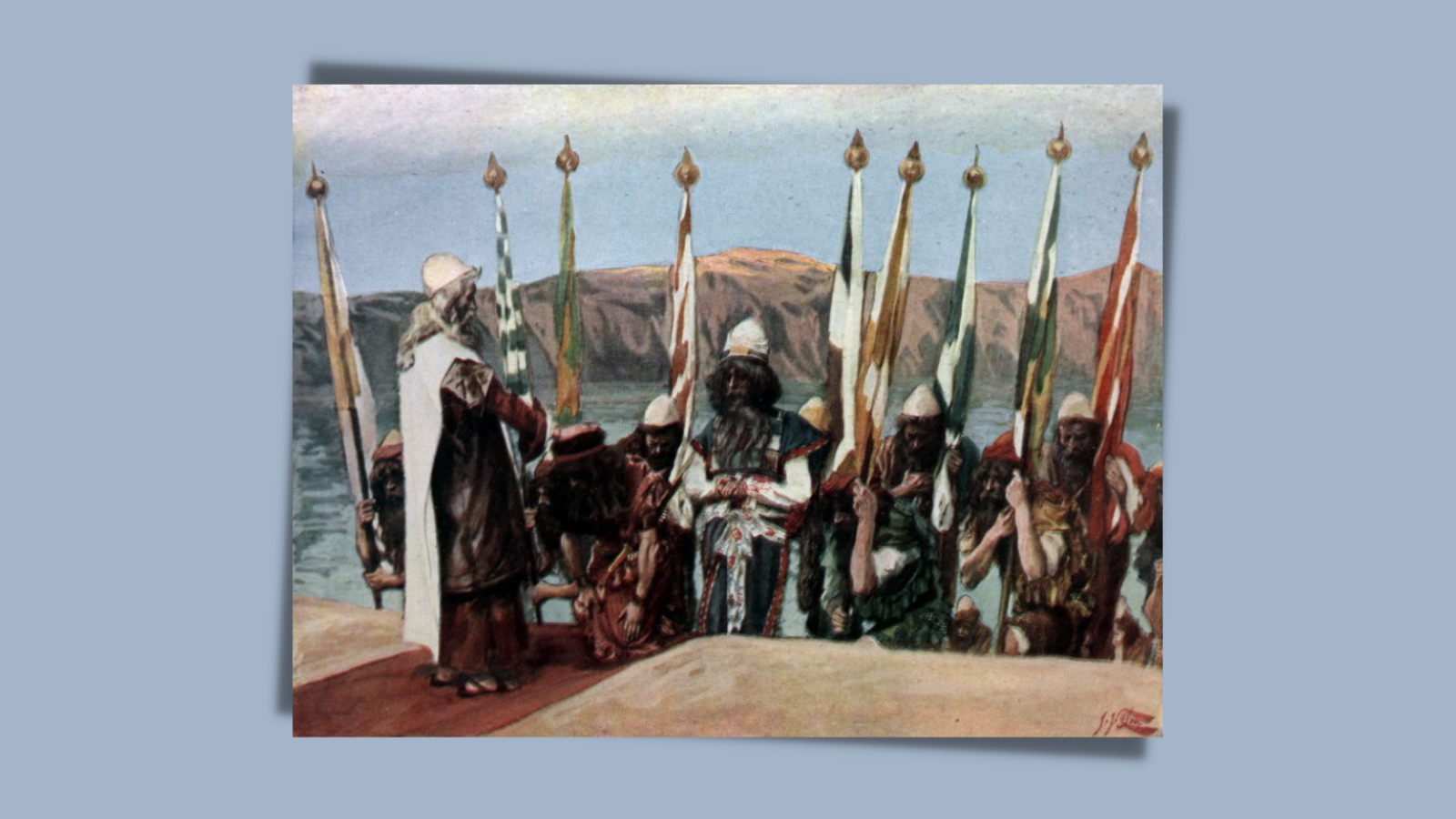Commentary on Parashat Pinchas, Numbers 25:10-30:1
As we approach the end of the Book of Numbers, generational change is at hand. Parashat Pinchas is about inheritances, the succession and installation of new leaders, and the death of Moses and his siblings. It also concerns elements of the immortal — that which is passed down beyond lifetimes.
As Moses climbs Mount Avarim — literally “Hill of Transitions” — he looks down upon the land he will never enter. Moses knows this because he is told that, like Aaron his brother — and for the same offense, namely striking a rock to bring forth water instead of speaking to it — he will soon be gathered to his ancestors. The fatal face-off with the rock was itself precipitated by the death of their sister Miriam, in whose merit, the Talmud teaches (Taanit 9a), a miraculous water source traveled with Israelites through the wilderness.
It really is the end of one generation of leadership and the beginning of the next. Moses is instructed to appoint a successor, Joshua bin Nun, whom he ordains by a laying on of hands, or semichah. To this day, rabbinic ordination is still passed on through this act in a symbolically unbroken chain going back to Moshe Rabbeinu, or “Moses our rabbi.” Joshua is then consecrated by the people and by Elazar, the high priest who has replaced his father Aaron. Earlier in the Torah portion, God awards Elazar’s son Pinchas a special brit shalom, or covenant of peace, and tells him it shall be for him and his descendants a pact of priesthood for all time.
The rabbinic legacy, and arguably the priesthood too, are ways we feel a connection to something immortal, something that transcends generations. This is also hinted at by the portion’s mention of the mysterious Serah bat Asher, the only one of Jacob’s granddaughters named in the Torah. Serah is mentioned at several points during the Israelites’ history – across a span of several hundred years. In Genesis 46, she is listed as one of those who went down with Jacob to Egypt. While there, it was she who had the ancestral knowledge to advise the elders on Moses’ veracity as a prophet and remember the whereabouts of Joseph’s bones (Pirke d’Rebbe Eliezer 47; Mechilta 13:9). Now she is named once again as the Israelites prepare to enter the promised land. Aptly enough, the name Serah means “overlapping” — like her role across epochs. It also clearly resembles Sarah, the original matriarch. Sar means chieftain or commander (as in tzar, shah, kaiser and caesar) .

Help us keep Jewish knowledge accessible to millions of people around the world.
Your donation to My Jewish Learning fuels endless journeys of Jewish discovery. With your help, My Jewish Learning can continue to provide nonstop opportunities for learning, connection and growth.
Clearly, the energy of Serah was powerful and enduring. According to legend, Jacob blessed her with immortality that her “mouth would never taste death,” for it was her mouth that sensitively conveyed to him the shocking news that his beloved Joseph, long thought dead, was in truth alive and ruling Egypt. This she did through music — singing “the words of unbearable desire to the music of longing and recollection,” in the words of the contemporary Bible commentator Avivah Zornberg. It was through her, says the midrash, that the ancestors transmitted code words and mystical teachings.
The image of Serah, the extremely old woman who lives far beyond most others of her generation, is one we probably recognize from our lived experience. But mythologically, like Moses and his Torah, Joshua and his semichah, Pinchas and his covenant of peace, she stands for something else as well: an immortal telling that travels through time. This is the mystery of Torah, an ancient song that still reverberates through centuries of human birth and death.
As we contemplate the loss of those we love, and the passage of the generations, may these teachings and transmissions be a comfort to us.
This article initially appeared in My Jewish Learning’s Reading Torah Through Grief newsletter on July 7th, 2023. To sign up to receive this newsletter each week in your inbox, click here.
Looking for a way to say Mourner’s Kaddish in a minyan? My Jewish Learning’s daily online minyan gives mourners and others an opportunity to say Kaddish in community and learn from leading rabbis.



